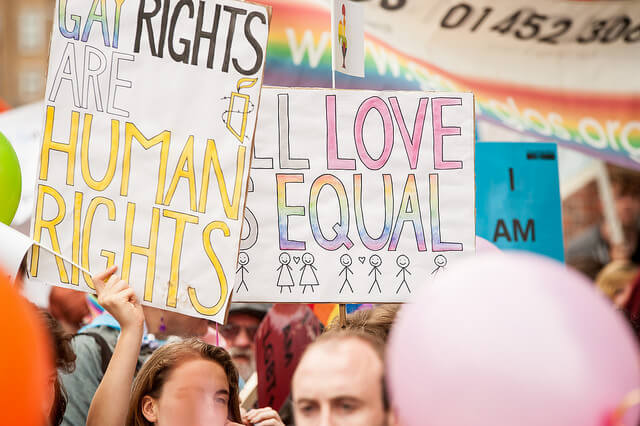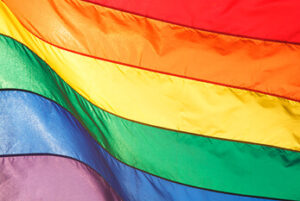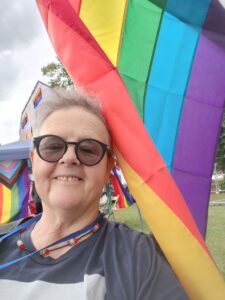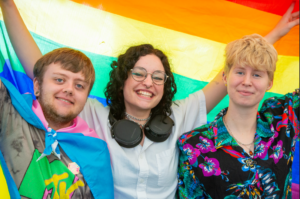| Equity & Diversity
The Rainbow Flag and Other History


Happy Wednesday, and welcome to this week’s blog!
As a History student, I have a strong belief that progress cannot be realized without an examination of where we have been. So before recognizing the distance we still have to go, it’s important to take a look back and celebrate the distance society in this country has travelled. A couple of weeks ago we explored a bit of the more recent history around LGBT legislation, if you missed it you can catch up here. Today we’re going to venture back further.
Throughout much of history homosexuality has been illegal. In 1102 the Council of London condemned it and in 1265, Thomas Aquinas argued that ‘sodomy’ was second only in its sinfulness to bestiality. In 1533, Henry VIII passed the ‘Buggery Act’ making homosexual intercourse punishable by death.
This paints a grim picture of what life was like for the LGBT+ community. However, it also demonstrates their strength! No matter how bad life got for them, there have always been people who are willing to stand up and be who they truly are. In 1476, Leonardo da Vinci was surrounded by scandal after being arrested on charges of sodomy. In May 1895, Oscar Wilde was sent to prison for indecency after being caught with his partner Lord Alfred Douglas. Alan Turing refused to apologise for his actions during his trial in 1952 and suffered until his suicide in 1954. Jeremy Bentham, a respected thinker in the eighteenth century, said that the persecution of homosexuals was no better than the killing of Jews, smokers or any other group:
“to destroy a man there should certainly be some better reason than mere dislike to his taste”
The last known executions for homosexuality in Great Britain took place in 1836, when James Pratt and John Smith were hanged at Newport prison. This was followed by the 1861 amendments to the Offences against the Person Act, which removed the death sentence for ‘buggery’. Progress was slow, it wasn’t until 1967 that the Sexual Offences Act decriminalized homosexual acts in a private place in England.


The rainbow flag that is so well known today was first used in 1978. Society is still a long way off equal treatment of the LGBT community though. According to statistics released by Stonewall:
1 in 5 LGBT people have experienced a hate crime/incident because of their sexual orientation or gender identity in the last 12 months
- 1 in 5 lesbian, gay and bi employees have experienced verbal bullying because of their sexual orientation in the last 5 years
- Half of LGBT students hear homophobic slurs ‘frequently’ or ‘often’ at school
- 7 in 10 football fans who’ve attended a match have heard or witnessed homophobia on the terraces.
This is a long way from right. So while celebrating the progress society has made, it is also important to keep striving to increase the inclusivity.
Here at the University we have an active LGBT+ society and work in partnership with Cheltenham LGBT partnership. The Student Union website also has a page specifically aimed at those who want advice related to their sexuality. Society may not be there yet, but we’re trying to move in the right direction.
If you have any ideas of how the University can do more to promote LGBT+ please feel free to contact us.
To stay updated, please like and follow us on twitter.



